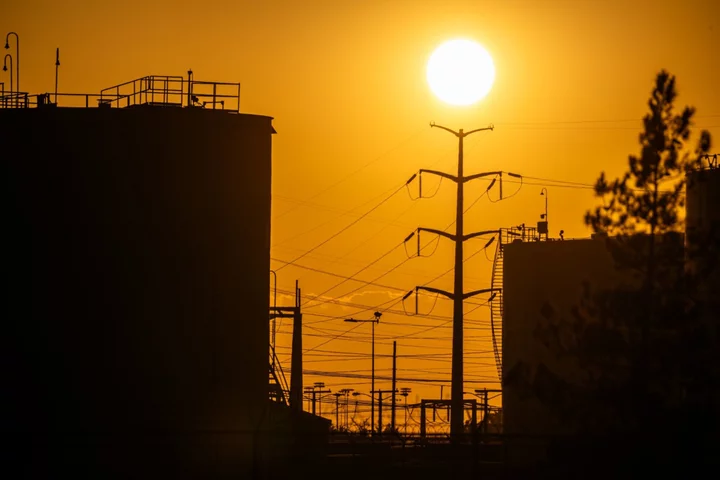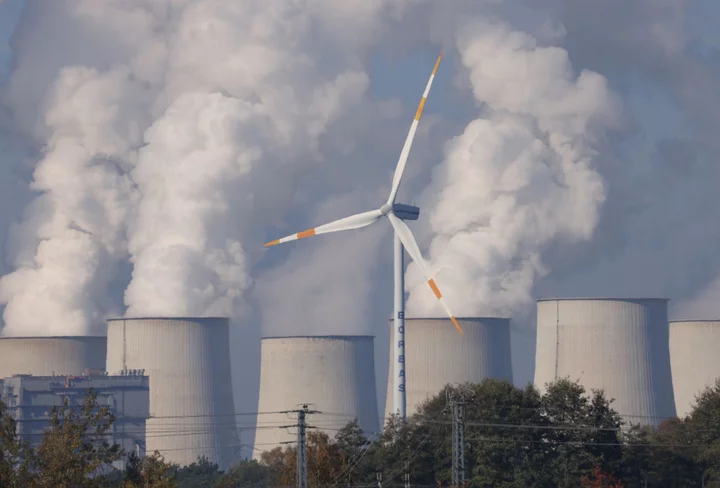Nearly 25% of the US population is facing high, wilting temperatures that show no sign of abating anytime soon, taxing power grids and raising health risks.
From California to Texas, Oklahoma and Arkansas about 46 million people are under excessive heat warnings while another 36 million are under the less severe, but very uncomfortable, heat advisories stretching as far north as Missouri and east to Florida, the National Weather Service said.
The oppressive conditions across the southern US could continue through next week, according to Ashton Robinson Cook, a forecaster with the US Weather Prediction Center. “That is oppressive heat for sure. I would think the duration of this heat wave is pretty unusual.”
The Electric Reliability Council of Texas, the state’s grid operator, expects near-record demand through the week as temperatures soar above 100F (38C) in many parts with humidity making it feel even hotter. San Antonio will reach 103F degrees on Wednesday and the heat index will rise to 109, while Houston will hit 99F but with a heat index reading of 111. High temperatures can also slow rail freight traffic and lead to airline delays.
The jet stream, a ribbon of winds that moves weather patterns around the world, has been far to the north, allowing the heat to build across the southern US and Mexico. In addition, the Gulf of Mexico has been very warm, pushing humid air inland across the south, Robinson said.
“Because the moisture is so high in the air mass, it decreases the ability of the air mass to cool off,” Robinson added.
In California, Sacramento is forecast to reach 96F Wednesday and a scorching 106F by Friday and 110F on Saturday, the weather service said. Fresno will hit triple digits Wednesday through the weekend.
Across northern Mexico, which also saw grid problems last month, temperatures are forecast to hit 104F to 113F in the states of Baja California, Sonora, Chihuahua, Coahuila, Nuevo Leon and Tamaulipas, according to the Servicio Meteorologico Nacional.
In the first half of this year, temperatures have been soaring in the eastern and southern US. Florida posted its hottest January to June period in records going back to 1895, while Massachusetts had its second warmest start, according to the National Centers for Environmental Information. In addition, 27 other states had their top 10 warmest first six months on record.
Even so, because of cooler and average conditions across the West, the US as a whole only saw its 21st warmest first half on record.
--With assistance from Naureen S. Malik.
(Corrects to use forecaster’s full name in third paragraph in story first published July 12.)
Author: Brian K. Sullivan









